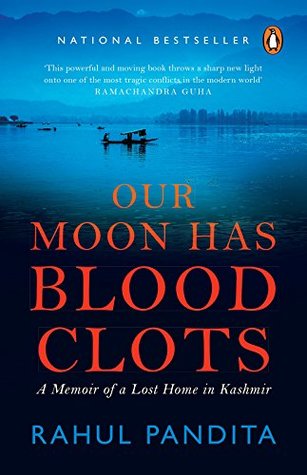More on this book
Community
Kindle Notes & Highlights
But as soon as the planks were assembled and the idols placed on a small, wooden platform, some Muslim men gathered and began to hurl abuses. One of them brought the whole structure down with a kick. There was no protest. We had learnt to live that way. Whenever things went sour, we would just lower our heads and walk away. Or stay at home, till things got better.
Ravi and I sat in disbelief as the stadium erupted with deafening cries of ‘Pakistan zindabad!’ Green flags, both Pakistani and the identical Jamaat-e-Islami banner, were seen being carried by people in the stadium. Many in the crowd also held posters of Pakistani cricketers. The Indian batsmen looked like rabbits caught in glaring headlights. On the sixteenth ball he faced, Gavaskar was caught out, having scored only eleven runs. The whole team crumbled in 41 overs for a total score of 176 runs. Later, as the West Indies team batted, the Indian fielders faced severe harassment. They were
...more
‘There you are!’ he said, and he laughed. ‘The dal-eating Indians cannot fight Pakistan.’
A few minutes later, it was as if it were Diwali in Kashmir. I think every cracker available in Kashmir was burst in the next one hour. People streamed out of their houses and on to the streets chanting Allah ho Akbar. In the nippy April weather of the Valley, people drank gallons of Limca to celebrate, the way they had seen cricket stars celebrate with champagne.
‘Why are you wasting your money like this?’ he said as he poured milk from his can. ‘Tomorrow, if not today, this house will belong to us.’ As usual Ma dismissed his talk.
In the forest they were waylaid by armed men who asked if there were any Hindus in their group. Ravi was the only one and the men were told that there were none. When they asked for their names, Ravi used a fake name that identified him as a Muslim.
Yahan kya chalega, Nizam-e-Mustafa La sharqiya la garbiya, Islamia Islamia
Zalzala aaya hai kufr ke maidaan mein, Lo mujahid aa gaye maidaan mein
a whistling sound could be heard. It was the sound of the mosque’s loudspeaker. We heard it every day in the wee hours of the morning just before the muezzin broke into the azaan. But normally the whistle was short-lived; that night, it refused to stop.
It was then that a long drawl tore through the murmurs, and with the same force the loudspeaker began to hiss. ‘Naara-e-taqbeer, Allah ho Akbar!’
Hum kya chaaaahte: Azadiiii!
‘Assi gacchi panu’nuy Pakistan, batav rostuy, batenein saan.’
In Srinagar, they would deliberately cut off electricity at the telecast time of Ramayan, and then later Mahabharat.
By April, 1990, the mask was completely off. It was not only the armed terrorist who took pride in such killings—the common man on the streets participated in some of these heinous murders as well.
One of the Muslim women in Ganju’s neighbourhood had seen him hiding in the drum. As the men came out, she signalled to them, telling them what she had seen. The men returned and went directly to the attic and shot B.K. Ganju dead inside that drum.
Girja stayed with a Muslim family—the head of the house was a friend of Girja’s father. The morning after she arrived, she was picked up by four men.
Girja, he said, had been abducted and immediately blindfolded. Four men had taken turns to rape her in a moving taxi. As they were conversing with each other, Girja recognized the voice of one of the men who went by the name Aziz.
Aziz got worried. He knew that Girja had recognized him. So, in a final act of barbarism, they took her to a wood-processing unit and cut her alive on a mechanical saw.
They were tied behind a jeep and dragged for three kilometres. But there was still some life left in their mutilated bodies. So they were shot dead.
When I saw Nehru for the first time in Lal Chowk, I was a refugee in my own state. Sixty years later, I am a refugee in my own country.
Many Pandits had converted to Islam to save their lives. After losing his job, Sapru approached a man who taught Arabic at his school. In the presence of fifteen men, a maulvi converted Bishambar Nath Sapru to Ghulam Mohammed. After his conversion, he was served some rice and sweetmeats, and someone blew a bugle to welcome him into his new faith.
There had been mass conversions during the tribal raid. At several places, the invaders had herded Pandits to a ground where, like their ancestors from Afghanistan who ruled Kashmir once, they slaughtered a calf, cooked it and forced the Pandits to eat it, and then read the Kalma while cutting their sacred thread. Conservative estimates suggest that thousands were converted forcibly to Islam.
‘I will tell you something,’ Vinod says, ‘when the gun shots were being fired, the people of the village increased the volume of the loudspeaker in the mosque to muffle the sound of the gunfire.’


